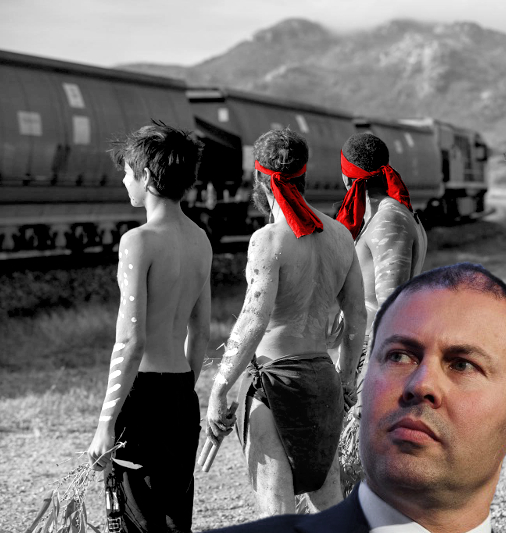Frydenberg heading north for pro-mining talks
 Josh Frydenberg, the new Resources and Energy Minister and Minister for Northern Australia, is heading to the top of the country to push for new opportunities.
Josh Frydenberg, the new Resources and Energy Minister and Minister for Northern Australia, is heading to the top of the country to push for new opportunities.
Frydenberg has booked trips to the NT, WA and Queensland, where he will meet with leaders and ministers to talk mostly about infrastructure for the mining industry in Northern Australia.
He is set to step into an ongoing feud between activists and Indian firm Adani, which is threatening the $16.5 billion Carmichael mine project in central Queensland's Galilee Basin.
He told reporters this week that Carmichael is “a very important project, which will see significant investment in Australia and provide electricity to millions of people in the developing world”, and that dealing with the tension “is going to be a real challenge for me”.
Frydenberg appears to have little patience for environmental campaigns.
“Anti-development activism can create major delays in projects and send investment offshore, and you have to be very conscious of that when there are such large time frames involved and we are competing internationally for investment in this country,” he told Fairfax.
“We are not the only nation in the world that produces iron ore or mines for coal.”
Mr Frydenberg met with the Minerals Council of Australia (MCA) - a lobby representing mining giants BHP Billiton, Rio Tinto, Glencore and Adani - in Melbourne this week to discuss the challenges posed by small community groups and environmentalists.
“I do think we've got a challenge going ahead,” MCA chief Brendan Pearson told reporters.
“Clearly there is still a small but vocal minority of people who will make new coal projects and to be honest all mining projects harder to get up.
“We have to find a way to satisfy the legitimate expectations of people to have a say on projects without suffering from interminable delays.”
Mr Frydenberg is now in charge of the $5 billion Northern Australia Infrastructure Facility fund unveiled in the budget in May.
He says it will still be deployed towards ports, roads, water and rail infrastructure projects, likely in partnership with private interests.
Mr Frydenberg was asked whther the money would be used to help miners by building infrastructure such as a rail line to transport coal from the Galilee Basin to ports.
“Yes, if there is a good case and state governments are willing to step up, then you would think that rail is one of the areas where it will go,” he said.
Billionaire miner Gina Rinehart has her own views on what to do in northern Australia.
She says the top third of the country should be declared a special economic zone, with reduces taxes and special visas to attract labour.
Mr Frydenberg indicated he thinks that could be overly ambitious, “you wouldn't want an outcome that became overly complex and trying to have special economic zones perhaps could have that outcome,” he said.
The Minister for Northern Australia will chair a COAG Energy Council meeting in December, where he is expected to move forward on a national energy productivity plan to reduce energy per unit of gross domestic product by 40 per cent by 2030.
This will require a big efficiency drive by the mining sector, and strong commitments from state government players, leading some to suggest it will be a good test of his negotiations and business skills.







 Print
Print